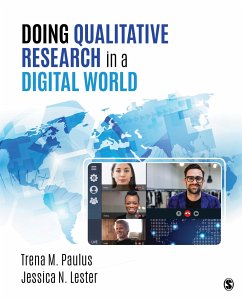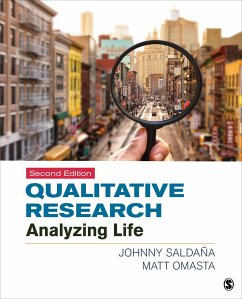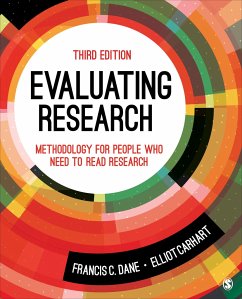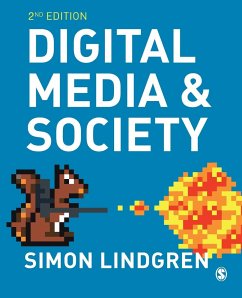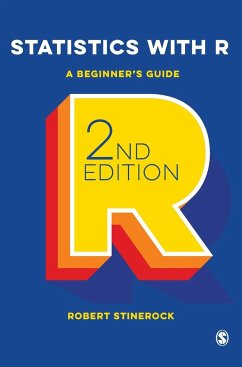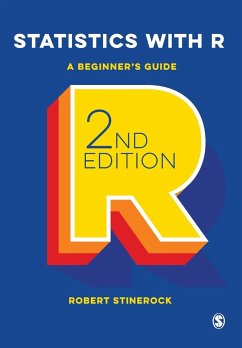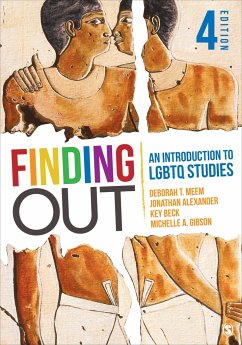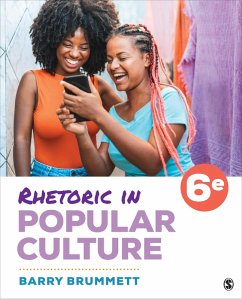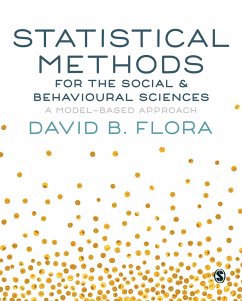
Research Methods in the Social and Health Sciences
Making Research Decisions
Versandkostenfrei!
Versandfertig in 6-10 Tagen
97,99 €
inkl. MwSt.

PAYBACK Punkte
49 °P sammeln!
Research Methods in the Social and Health Sciences: Research Decisions, by Ted Palys and Chris Atchison, gives students a thorough, thoughtful, and highly readable introduction to the entire research process from start to finish. From its underlying premise that your research questions and objectives, rather than any specific method, should guide your research, this book discusses each step of the research process, from limiting the scope of a literature review to navigating ethical considerations to deciding which methods are best suited for finding answers to specific research questions to h...
Research Methods in the Social and Health Sciences: Research Decisions, by Ted Palys and Chris Atchison, gives students a thorough, thoughtful, and highly readable introduction to the entire research process from start to finish. From its underlying premise that your research questions and objectives, rather than any specific method, should guide your research, this book discusses each step of the research process, from limiting the scope of a literature review to navigating ethical considerations to deciding which methods are best suited for finding answers to specific research questions to how to analyze data and present findings. Readers are encouraged to think deeply about each step of the research process. The book promotes this deliberation by discussing the strengths and limitations of different methods and. Throughout the process, the authors provide many examples from their own and student research, sharing insights for research decisions arising from that experience. Readers will develop the skills to create solid research questions, perform literature reviews, identify appropriate data sources and methods, conduct research, analyze and interpret data and translate the resulting knowledge generated from the research process to a wider audience all core parts of the research process by developing their knowledge and creating confidence in their own decision-making skills.
After explaining the unique and often complementary strengths of qualitative and quantitative methods, students focus on what methods are best suited for finding answers to the research questions that interest them. Major types of research including experiments, case studies, surveys, quasi-experiments, ethnographies, focus groups, participatory action research, and archival studies all receive significant coverage. The text illustrates how these methods are enhanced by integrating them with 21st century technologies and combining them in mixed methods projects.Chapters on constructing a research proposal and disseminating research bookend the process with concrete steps in between to support students designing their own original research projects. Study questions at the end of each chapter encourage students to think critically about the research process and how the choices a researcher makes will broaden or constrain what they can find. By the end of the text, social and health science students will feel confident in undertaking ethical and thoughtful research.
After explaining the unique and often complementary strengths of qualitative and quantitative methods, students focus on what methods are best suited for finding answers to the research questions that interest them. Major types of research including experiments, case studies, surveys, quasi-experiments, ethnographies, focus groups, participatory action research, and archival studies all receive significant coverage. The text illustrates how these methods are enhanced by integrating them with 21st century technologies and combining them in mixed methods projects.Chapters on constructing a research proposal and disseminating research bookend the process with concrete steps in between to support students designing their own original research projects. Study questions at the end of each chapter encourage students to think critically about the research process and how the choices a researcher makes will broaden or constrain what they can find. By the end of the text, social and health science students will feel confident in undertaking ethical and thoughtful research.



